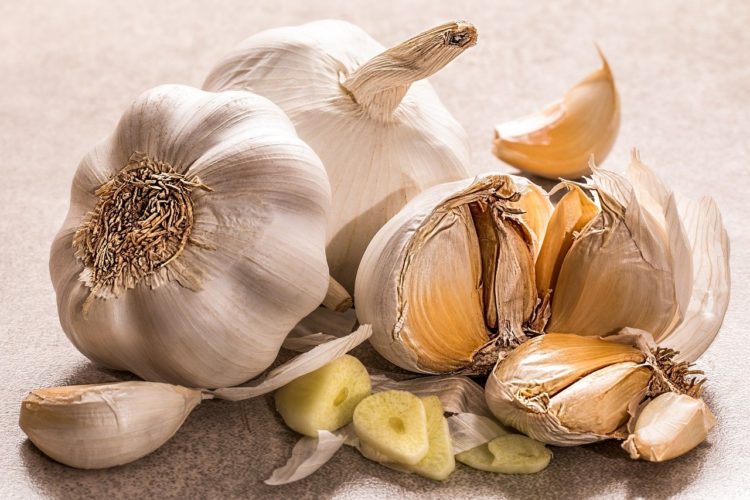 By Hannah Six, Novant Health
By Hannah Six, Novant Health
Nov. 4. Natural remedies are everywhere these days. From vitamin C to zinc, everyone’s touting their version of a cure for what ails you. And between the COVID pandemic and the coming cold-and-flu season, this conversation is just heating up.
It’s easy to feel overwhelmed by all the options, to fall under the spell of well-concealed marketing techniques. But do all these supplements and so-called superfoods really help? Or, could they even be harmful?

Dr. Russell Greenfield. Courtesy Novant Health
For answers, we went to Dr. Russell Greenfield, of Novant Health Integrative Medicine, to learn how natural remedies might be useful, especially during the coming months:
Why are we so drawn to natural remedies?
Greenfield: We’re all experiencing a lot of fear right now, and that’s understandable. We’re dealing with a brand-new virus, and conventional medical care hasn’t been able to offer many definitive answers. In uncertain times, it’s natural to look for alternatives, to reach for things that make sense to us or offer some degree of comfort.
Though alluring, even if we had evidence that a vitamin or herbal supplement offered benefits for the common cold or flu, it would be premature — and potentially harmful — to apply that experience to COVID-19.
Can natural remedies really be harmful?
Greenfield: They can. For example, there’s been a lot of discussion about elderberry extract recently, because, theoretically, it might contribute to what’s known as “cytokine storm,” which is an overzealous immune system response.
Cytokines are a type of protein that help launch our bodies’ inflammation and immune-system responses to injury or illness. When we get sick, symptoms like congestion, coughing and fever come less from the illness itself than from the body’s response to the infection or virus.
For example, during the 1918 Spanish Flu epidemic, most of the people who succumbed did so because their immune systems responded so vigorously to the infection that they “drowned” in the fluids that developed in their lungs.
There is evidence that elderberry products ease flu symptoms and support the immune system, but taking elderberry might lead to an overzealous immune system response, which would be harmful if you get COVID-19. So, for now, I’m recommending folks avoid elderberry until it’s proven to be safe in the setting of COVID-19.
However, if you really want to use elderberry, you’ll want to immediately stop taking it if you come down with COVID symptoms (loss of taste and smell, etc.) until more is known, on the chance that it might promote cytokine storm.
What about vitamin D?
Greenfield: Initial concerns about vitamin D potentially also promoting cytokine storm have been replaced with enthusiasm for ensuring adequate levels of vitamin D in the body. Research findings suggest that healthy vitamin D levels may actually help protect against infection and prevent cytokine storm from occurring.
Supplementing with vitamin D appears to be most important for those with low levels. We are waiting for further research in this regard. However, considering that almost 50% of us have low levels of vitamin D because we stay indoors so much, it is worthwhile to ask your doctor if supplementation is appropriate for you. If your vitamin D levels are already adequate, adding it as a supplement isn’t likely to offer significant benefits against COVID-19.
Are there other natural remedies we should avoid?
Greenfield: One thing in particular I do ask people to avoid is colloidal silver, which is touted as a treatment for infections and illnesses from the common cold to Lyme disease. But, there’s absolutely no evidence to support these claims. Even worse, when people use it for a long time, their skin develops a blue tinge that does not go away.
It’s important to remember that “natural” is not synonymous with “safe.” Until we’re certain about safety, we shouldn’t go out willy-nilly, taking everything we can find at the health food store. And, even when natural agents like echinacea or melatonin do show promise for colds or flu, that doesn’t mean the same will be true for the novel coronavirus.
Are any supplements proven to prevent respiratory infections?
Greenfield: There’s some promising data about the effectiveness of vitamin C, and aside from some concerns about people with kidney stones, it’s generally safe. Evidence suggests a reasonable dose of 500-1000 milligrams a day during cold and flu season may have a protective effect.
In terms of COVID, there’s some intriguing research happening right now on whether vitamin C shortens the duration and severity of the virus like it may in cold and flu. We just don’t know yet if people should be taking this specifically for COVID.
Other popular natural remedies…
We also asked Greenfield about a few of the most popular home remedies on the internet, where they are often touted as cure-alls. Here’s what he had to say:
Apple cider vinegar: If taken appropriately — always diluted, and in small amounts — I think apple cider vinegar is safe, and it may have certain benefits. In cancer settings, the idea of acid-base balance comes up, but that’s still far from a proven theory. As far as effectiveness in terms of COVID, flu and colds, it would be premature to jump on board now.
Coconut oil: Generally, I’m not opposed to coconut oil, but it is a saturated fat. Recently, an article came out of the Philippines about coconut oil and COVID. It got a lot of play, but one study isn’t enough to say whether it’s going to help. I’m glad people are looking into this, but I’m not going out of my way to recommend coconut oil yet.
Garlic: In my training with Dr. Andrew Weil, one of the things I learned was to swallow up to a tablespoon of minced or chopped garlic (straight!) at the first signs of a cold. The evidence for this is anecdotal, but just as with coconut oil, it’s a generally safe action to take, and there is some rationale behind it.
Green tea: Green tea has some antimicrobial activity, but I don’t know of any data showing it’s effective against COVID. Green tea’s high antioxidant levels and polyphenols might help fight cancer and lower cholesterol. Also, it contains the amino acid L-theanine, which may help with anxiety. So, there are good reasons to drink green tea, but I am not a fan of taking green tea supplements, some of which have been linked to liver damage.
Medicinal mushroom extracts: I take a medicinal mushroom extract every day. It may help boost the immune system, and there’s no evidence yet suggesting it could induce cytokine storm. Do I know of research showing it will prevent me from coming down with COVID? No, I don’t. But, even though I’m a physician, I’m just like everyone else: looking for a little extra something that might help keep me and my family safe.
Zinc: Zinc looks interesting — there’s some thought that it may inhibit the entry of the coronavirus into cells. But again, we don’t have enough evidence to say everyone should be taking it. Many people use zinc during cold and flu season, but they often think more is better. That’s not true, and taking large amounts of zinc can cause side effects, Greenfield said. High zinc intake over time can result in low levels of copper, that with high levels of zinc, can actually lead to a depressed, rather than strengthened immune system. The FDA has also warned consumers that zinc nasal sprays can lead to loss of smell.
The bottom line
We’re still in the infancy stage, in terms of knowing whether any of these natural agents will be helpful with COVID.
It may sound old-fashioned, but the best way to stay well is still mom’s common-sense advice: eat a healthy diet, get enough sleep, stay hydrated and take steps to manage your stress. We also know for a fact that the general guidelines about social distancing, frequent hand-washing and wearing a face mask are very effective at preventing the spread of disease.
Above all, it’s important to check with your doctor — an integrative medicine specialist if at all possible — before taking any natural remedies, to make sure they don’t interact with your current prescriptions or worsen any underlying medical conditions you may have.
—Novant Health / Healthy Headlines
For the latest health news and advice from Novant Health providers, visit: https://www.novanthealth.org/healthy-headlines/




